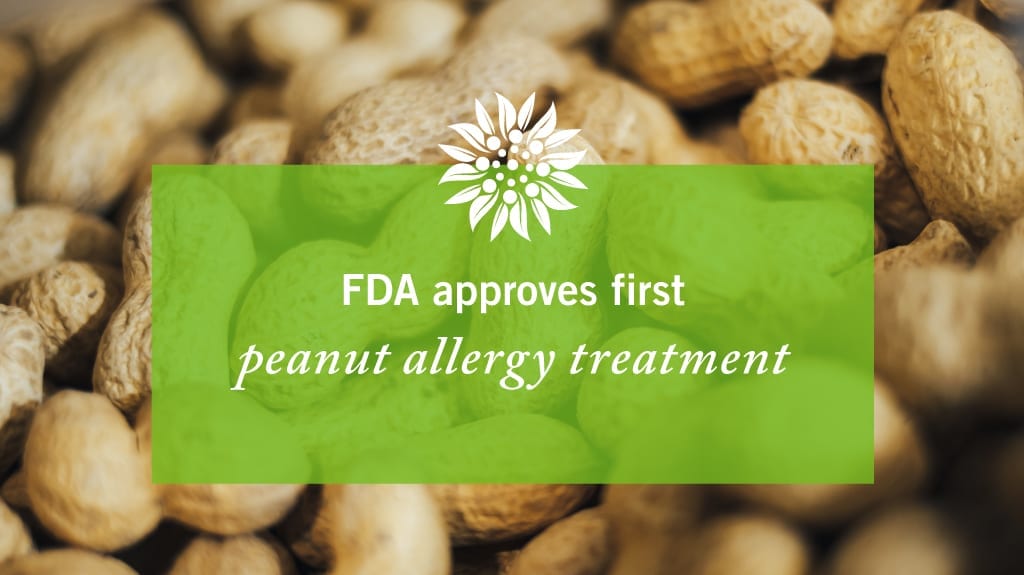On January 31, 2020, Palforzia became the first FDA-approved “medication” for peanut allergy. Dr. Meredith Moore states, “As a board-certified allergist who has been providing oral immunotherapy (OIT) to patients for peanut, tree nuts, multi-nut and wheat for the past three years, I have been excitedly awaiting FDA approval of Palforzia.” The FDA’s decision helps move OIT to a more accepted option for food allergic patients. Additionally, the safety and efficacy data for Palforzia is comparable to the methods being employed by OIT allergists for 10+ years using other sources of peanut protein.
Palforzia treatment doses start at 0.5 mg peanut protein and gradually build to a 300 mg daily dose over a period of about six months. The 300 mg daily dose is equivalent to about one whole peanut or ¼ teaspoon of peanut butter. The studies show that 67% of patients in the Palforzia study were able to eat at least two peanuts without having allergic symptoms. Palforzia showed success in reducing reactions to amounts that would be expected to occur in accidental ingestions or cross-contamination.
The protocol used for patients undergoing OIT at Charleston Allergy & Asthma for the past three years uses a peanut flour that has been analyzed for OIT use and then transitions to whole roasted peanuts that can be purchased at the grocery store. The ingested amount starts at 0.005 mg and builds to 2000 mg as a daily maintenance. This maintenance has been shown to allow patients to safely eat up to 6000 mg of peanut protein or two tablespoons of peanut butter. Some patients may not want that high of a safety goal in which case our OIT protocol can be customized for each patient’s needs and preferences.
Multiple news sources have reported that Palforzia’s annual price has been set at $10,680 (or $890 per month). At this point, it is not known how much, if any, health care insurers will cover of this drug cost. Charleston Allergy & Asthma’s current OIT patients generally spend less than $300 for peanut protein capsules/flour and supplies before converting to roasted peanuts, Peanut M&Ms or peanut butter.
Aimmune Therapeutics is researching development of other OIT products such as tree nut and egg. Charleston Allergy & Asthma physicians have experience treating patients with OIT for tree nuts and wheat using sources currently available.
OIT, using Palforzia or another food source, helps food allergic patients reduce their risk of allergic reactions from unexpected or accidental ingestions. There are risks with any OIT protocol, including anaphylaxis, eosinophilic esophagitis, stomach aches and frustration with the daily dosing process. Dr. Moore includes, “There are very important precautions for patients on OIT regarding activity, exposure and illness that Charleston Allergy & Asthma physicians have experience educating patients about. Personalized OIT treatment also requires adjustments of dosing protocols for school trips, vacations, and day-to-day life that we understand and have the expertise to implement.”
Dr. Moore says, “For some patients, the benefit of having a ‘safety net’ brings freedom from fear of allergic reactions that is worth the risks and inconvenience. Some patients and families are more comfortable and skilled at avoiding their allergenic food and OIT is not the right path for them. Charleston Allergy & Asthma looks forward to partnering with patients and families to help determine which treatment options are best for you. Reach out today if you would like to learn more about our food allergy treatment plans.




